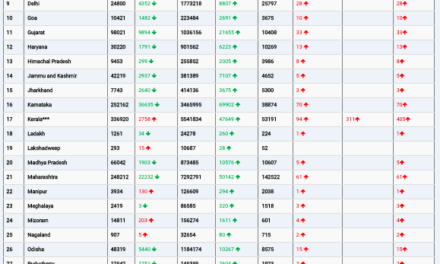Recent research published in The Lancet Infectious Diseases has unveiled concerning findings regarding the lingering risks posed by the chikungunya virus (CHIKV). The study, led by researchers from the London School of Hygiene & Tropical Medicine (LSHTM), suggests that individuals infected with CHIKV face an increased risk of death from heart and kidney complications for up to three months post-infection.
Chikungunya, a viral disease transmitted by mosquitoes, poses a significant threat to public health globally. Typically spread by Aedes aegypti and Aedes albopictus mosquitoes, the virus can lead to severe joint pain and fever, with the name “chikungunya” originating from a word in the Kimakonde language meaning “to become contorted.”
Analyzing data from nearly 150,000 recorded chikungunya infections within the 100 million Brazilian cohort, the study team discovered that individuals infected with the virus remain vulnerable to complications even after the acute phase of infection ends. Despite the acute phase typically lasting for about 14 days post-symptom onset, the risk of death from complications persists.
During the first week following infection, individuals were eight times more likely to die compared to unexposed individuals. Even at three months post-infection, the risk of death from complications remained twice as high for those previously infected.
Furthermore, the study revealed an increased risk of death due to cardiovascular conditions, including ischemic heart disease, metabolic disorders, and kidney diseases, independent of age group and sex.
Dr. Enny Da Paixao Cruz, Associate Professor at LSHTM, emphasized the importance of recognizing the enduring risks associated with chikungunya infection, especially as the disease is expected to increase in frequency and distribution due to factors like climate change, urbanization, and human mobility.
Despite the alarming findings, there are currently no specific medications available for preventing or treating chikungunya. However, a significant milestone was achieved in November 2023 with the approval of the world’s first chikungunya vaccine by the US Food and Drug Administration.
Dr. Cruz stressed the urgent need for continued research and development of effective therapeutics for chikungunya, along with equitable access to approved vaccines, particularly in regions experiencing recurring outbreaks. Additionally, reinforcing measures to control the spread of CHIKV-carrying mosquitoes is deemed essential for reducing the excess mortality associated with the disease.
As the global community grapples with the evolving threat of chikungunya, the insights provided by this study underscore the imperative of proactive measures to combat this debilitating virus and protect public health worldwide.











